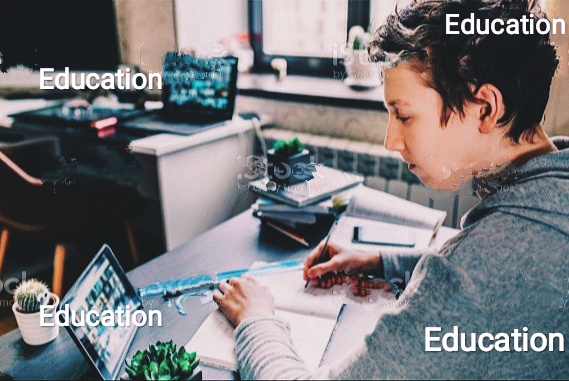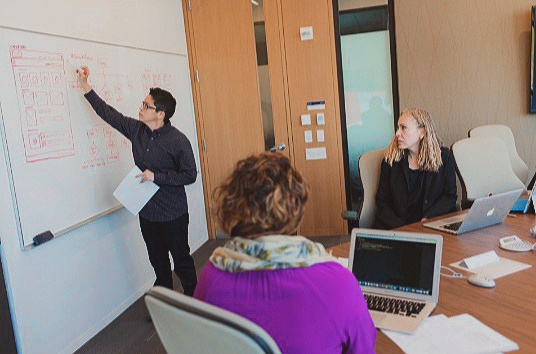What's 2nd Conditional Sentences & How To Use It?
The second conditional is a great grammatical structure to use when we want to talk about hypothetical or imaginary situations. In this post, we are going to look at some examples of your second conditional question, some second conditional example sentences and we will explain how to create second conditional sentences and questions. Let's get started now.
What Is Second Conditional Sentences?
The second conditional using the model verb "would" indicates that a condition is less likely to be met. They reflect somewhat deliberate thinking, but not impossible, and if they do, results will follow. These sentences often use "were" instead of the past tense as a subjective sentence.However, the conditional nature of these sentences - the terms and results using the "if" connection - makes them conditional, not thematic.
What Does Second Conditional Mean?
Whereas the first conditional is used to describe future assumptions which may be true, the second condition is used for present or future assumptions which are much more unlikely. In its simplest form, the second conditional application rule is as follows: if + simple past tense,… will be + infinite. These sentences usually use a if or not and a base verb to create a hypothetical scenario using if and common past tense (is, was). Let's break down the formula little by little.Examples Of Second Conditionals
The second conditional is that the "if" clause has a simple past. The resulting part of the sentence is then written as "would + infinitive verb"; This is called the present conditional tense.For example:
- If he called, I would answer.
- If the weather improves, our crops would bear fruit.
- If you are diligent in your studies, you would succeed in college.
- I would faint if I met Brad Pitt.
- You can understand the joke if you are there.
- If I were poor, I would never work again.
- Smith would help you move if he knows where you are.
- The children would eat their fruits if they tasted better.
How To Use Second Conditional Sentences
The second conditional sentences are effective for expressing results that are completely unrealistic or will not happen in the future. Consider the following example:- Examples
- If I were to inherit one billion dollars, I would travel to the USA.
- Examples
- If I owned a park, I would probably let people have more contact with animals.
Notice the correct way of constructing the second conditional sentence if the common past tense is used in the if-clause and a supporting modal verb (e.g., could, should, would, might) becomes mainstream (which expresses unrealistic or improbable). The following sentences illustrate some of the common mistakes people make when using the second conditional:
- Incorrect
- If I inherited one billion dollars, I would travel to the USA.
- Correct
- If I inherited a billion dollars, I would travel to the USA.
Explanation: When applying the second conditional, use the simple past tense in the if-section.
- Incorrect
- If I owned a park, I will let people interact more contact with animals.
- Correct
- If I owned a park, I might let people interact more contact with animals.
Explanation: Use a model auxiliary verb in the mainstream when using the second conditional mood to express the possibility that the result will actually happen.
Second Conditional Questions
The second conditional question is used to ask about a hypothetical or conjectural situation that is unlikely to happen. For example, the question 'If you won the lottery, what would you do'? Talking about an unlikely situation (winning the game) and imagining what you would do in that situation.The second conditional question is quite simple! The second conditional question has two parts. One part, we call it 'part', it is condition, and the other part we call 'fragment b', fictional event. For part A, the verb is used in the past tense, and for part B, the verb "would" can be used in conjunction with the main verb. You can ask a second conditional question by leaving the first part A or part B, then the other part. Let's look at an example:
- If you won the game, what would you do?
- What would you do if you won the game?
- If you saw snake, what would you do?
- If the birds could talk, what would they say?
- If you could travel in the future, what would you do?
- If you could travel to the past, when would you go to?
- If you could be ten forever, which would you choose?
- If you could change any things about yourself, what would you change?
- If you could speak a few languages perfectly, which one would you choose?
- If you had a 3d printer, what would you print?
- If you could have a super power, which would it be?
- If you only ate one meal forever, which would it be?
- If you lived to be 400, how would your life be different?
- If you changed your full name, what name would you want?
- If you saw a bear, what would you do?
- If you made 1 change in the world, what would it be?
- If you were a musician, what kind of song would you make?
- If you knew the world was going to end What would you do if?
- Where would you live in, if money weren’t a problem?
- What bird would you be, if you could be any?
- What would the weather be not like, if you controlled it?
- What would you do if your coffeeshop caught fire?
- If you could be anyone for a day, who would you be?
- If you were invisible for a day, what would you do?
- If you were a billionaire, who would you help?
- Where would you go, if you had to run from the police?
- Why sport would you want to be good at if you had the choice?
- What would you be famous for if you had a choice?
- Which planet would you going to if you had a spaceship?
- What would you wish for, if you had two wishes from a genie?
- What would you do, if collage was cancelled today?







